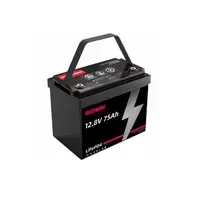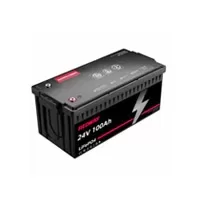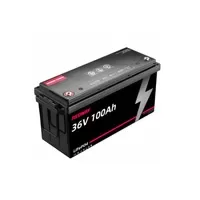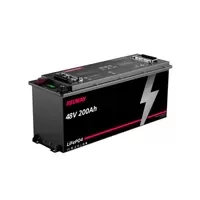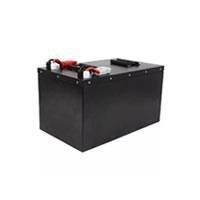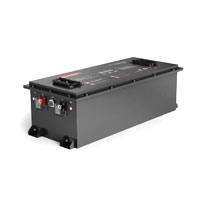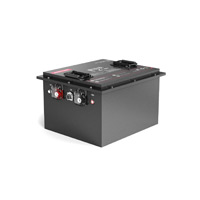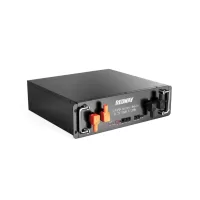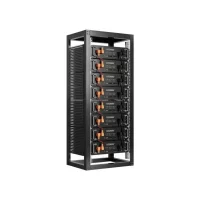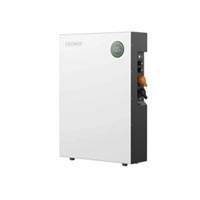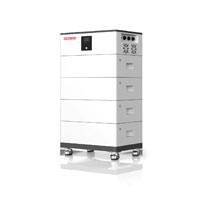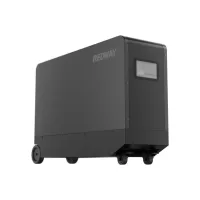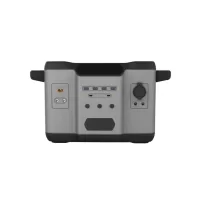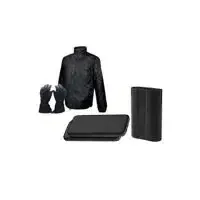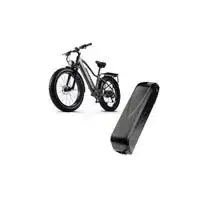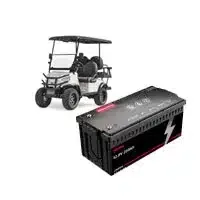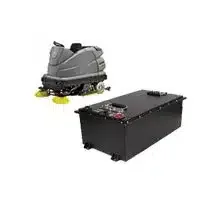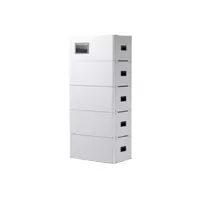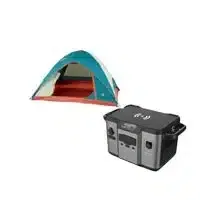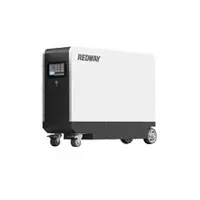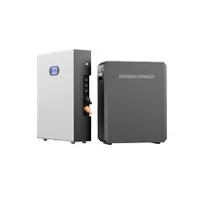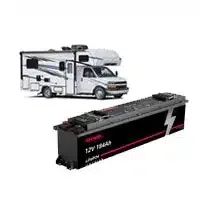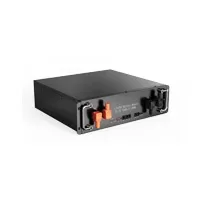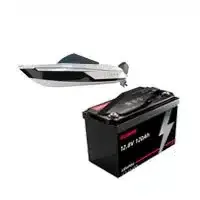Are you ready to hit the open road and embark on unforgettable adventures in your RV? Well, before you rev up the engine and start planning your next trip, there’s one crucial component that deserves your attention – the battery. Yes, that little powerhouse tucked away in your RV plays a vital role in providing reliable power for all your modern conveniences. But with so many options out there, how do you choose the perfect battery for your needs? Fear not! In this blog post, we’ll guide you through the ins and outs of selecting a lithium battery for your RV. So buckle up and get ready to power up!
The importance of a reliable battery for RVs
Your RV is more than just a mode of transportation; it’s your home on wheels, your sanctuary away from the hustle and bustle of everyday life. And what keeps your little haven running smoothly? You guessed it – a reliable battery. A good battery is like the heart that pumps life into your vehicle, providing power for essential functions such as lighting, appliances, electronics, and even heating or cooling systems.
Think about it – when you’re out in the wilderness or camping off-grid, you need to rely on your battery to keep everything operational. Imagine waking up in the morning without electricity to make coffee or charge your devices. It would certainly put a damper on those magical sunrises! Plus, having a dependable battery ensures that vital safety features like smoke detectors and carbon monoxide alarms stay powered up at all times.
But here’s where things get interesting: not all batteries are created equal. Traditional lead-acid batteries may be common, but they have limitations when it comes to performance and lifespan. This is where lithium batteries come into play – they offer numerous advantages over their counterparts.
Lithium batteries are known for their exceptional energy density, which means they can store more power in a smaller package compared to other types of batteries. This translates into longer-lasting usage time before requiring recharging. Additionally, lithium batteries have an extended cycle life and can withstand more charge-discharge cycles without significant degradation.
Furthermore, these high-performing powerhouses are much lighter than traditional options while delivering consistent voltage output throughout their useable capacity range – no more worrying about diminishing power levels affecting device performance!
Investing in a reliable lithium battery for your RV not only improves efficiency but also enhances overall peace of mind during your travels. With increased reliability and longevity comes less downtime spent troubleshooting electrical issues or replacing worn-out batteries.
So remember this: choosing the right battery for your RV isn’t just about convenience; it’s an investment that directly impacts your comfort and enjoyment on the road. Take the time to research and
Understanding the basics of lithium batteries
Understanding the Basics of Lithium Batteries
Lithium batteries have become increasingly popular in the world of RVs due to their numerous advantages over traditional lead-acid batteries. But what exactly are lithium batteries and why should you consider them for your RV?
At its core, a lithium battery is a rechargeable power source that utilizes lithium ions to store and release energy. Unlike lead-acid batteries, which use heavy metal plates submerged in an electrolyte solution, lithium batteries employ advanced chemical reactions within lightweight cells.
One key advantage of lithium batteries is their high energy density. This means they can store more energy per unit weight than other types of batteries, making them ideal for applications where weight matters – such as RVs.
Another notable benefit is their longer lifespan. While traditional lead-acid batteries typically last 3-5 years, high-quality lithium batteries can endure up to 10 times longer with proper care. This not only saves you money in the long run but also reduces waste by minimizing battery replacements.
Additionally, lithium batteries offer faster charging times and higher discharge rates compared to their counterparts. They can be charged at a much quicker pace, allowing you to spend less time waiting around and more time enjoying your adventures on the road.
However, it’s important to note that not all lithium batteries are created equal. When choosing one for your RV, there are several factors to consider such as capacity (measured in amp-hours), voltage compatibility with your RV’s electrical system (commonly 12V or 24V), and overall quality from reputable brands.
Safety should always be a top priority when dealing with any type of battery technology. It’s crucial to follow manufacturer guidelines regarding installation, usage limits, and storage conditions to avoid potential hazards or damage.
In conclusion: Understanding the basics of lithium batteries is essential for selecting the right power source for your RV needs. With their superior energy density, extended lifespan,and fast charging capabilities, lithium batteries can greatly enhance your RV experience. However, thorough research
Factors to consider when choosing a lithium battery for your RV
When it comes to choosing a lithium battery for your RV, there are several key factors that you should consider. First and foremost is the capacity of the battery. This refers to the amount of energy it can store and is typically measured in ampere-hours (Ah). It’s important to choose a battery with enough capacity to meet your power needs while on the road.
Next, you’ll want to consider the voltage of the battery. Most RVs operate on a 12-volt electrical system, so selecting a lithium battery with this voltage will ensure compatibility. However, if you have specific power requirements or appliances that require higher voltages, you may need to explore options with different voltages.
Another factor to keep in mind is durability and lifespan. Lithium batteries are known for their long lifespan compared to other types of batteries. Look for reputable brands that offer warranties or guarantees on their products.
Weight and size are also important considerations when choosing a lithium battery for your RV. You want a battery that fits easily into your RV’s storage compartments without adding excessive weight that could impact fuel efficiency or towing capacity.
Don’t forget about safety features such as built-in protection against overcharging, overheating, or short-circuiting. These features can provide peace of mind knowing that your battery is protected against potential hazards.
By carefully considering these factors, you can make an informed decision when choosing a lithium battery for your RV that meets both your power needs and budget constraints
Top brands and models of lithium batteries for RVs
When it comes to choosing a lithium battery for your RV, there are several top brands and models that stand out in the market. These brands have built a reputation for producing reliable and high-performance batteries specifically designed for RVs.
One of the top brands is Battle Born Batteries. Known for their exceptional quality and durability, Battle Born Batteries offer long-lasting power and can handle heavy loads. Their batteries also have a built-in battery management system (BMS) that provides protection against overcharging, overheating, and excessive discharge.
Another popular brand is Renogy. Renogy offers a range of lithium batteries with different capacities to suit various RV needs. Their batteries are known for their compact size, lightweight design, and excellent performance even in extreme temperatures.
If you’re looking for a premium option, Victron Energy is worth considering. They offer high-quality lithium batteries with advanced features such as Bluetooth connectivity, allowing you to monitor your battery’s status via an app on your smartphone.
Battle Born Batteries,
Renogy,
Victron Energy
These are just a few examples of the top brands in the market; there are many other reputable options available as well. It’s important to research and compare different models based on factors like capacity, weight, warranty period, price point before making your decision.
Maintenance and care tips for your lithium battery
Maintenance and Care Tips for Your Lithium Battery
Proper maintenance and care are essential to ensure the longevity and optimal performance of your lithium battery in your RV. Here are a few tips to keep in mind:
1. Regular Inspections: Periodically inspect your battery for any signs of damage or wear, such as cracks or leaks. This will help you catch any potential issues early on.
2. Cleanliness: Keep the battery clean by wiping it down regularly with a damp cloth. Avoid using harsh chemicals that could damage the battery.
3. Charging Practices: Follow recommended charging practices to maximize the lifespan of your lithium battery. Avoid overcharging or deep discharging, as this can negatively affect its performance.
4. Temperature Control: Extreme temperatures can impact the efficiency of lithium batteries. Store them in a cool, dry place when not in use, and avoid exposing them to excessive heat or cold during operation.
5. Proper Storage: If you plan on storing your RV for an extended period, remove the lithium battery and store it separately in a cool location with around 50% charge remaining.
By following these simple maintenance tips, you can ensure that your lithium battery serves you well throughout your travels without any unexpected hiccups!
Alternative power sources for RVs
Alternative Power Sources for RVs
When it comes to powering your RV, there are more options available today than ever before. While lithium batteries are a popular choice, there are also alternative power sources that can help keep your RV running smoothly no matter where you roam.
1. Solar Power: Harnessing the energy of the sun is not only environmentally friendly but also cost-effective in the long run. Installing solar panels on the roof of your RV allows you to generate electricity during daylight hours and store it in a battery bank for use at night or when sunlight is limited.
2. Wind Power: If you’re traveling in areas with consistently strong winds, consider adding a wind turbine to your RV setup. Just like solar panels, wind turbines generate electricity that can be stored and used as needed.
3. Propane Generators: Propane-powered generators offer a reliable source of backup power for your RV. They are quiet, efficient, and produce fewer emissions compared to traditional gasoline generators.
4. Fuel Cell Technology: Fuel cell systems convert hydrogen into usable electricity through an electrochemical process, making them another viable option for off-grid power generation in an RV.
5. Hybrid Systems: Combining different alternative power sources can provide even greater flexibility and reliability for powering your RV. For example, using both solar panels and propane generators allows you to maximize energy production based on weather conditions or specific power requirements.
Remember that each alternative power source has its own advantages and limitations depending on factors such as location, budget, and individual needs. It’s important to research thoroughly and consult with experts before deciding which option is best suited for your specific situation.
By exploring these alternative power sources for your RV, you can ensure that you have a backup plan in case of emergencies or prolonged periods without access to electrical hookups at campsites! So why limit yourself? Embrace these alternatives today!
Conclusion
Conclusion
Choosing the right lithium battery for your RV is essential to ensure a reliable power source while on the road. By understanding the basics of lithium batteries and considering important factors such as capacity, voltage, weight, and price, you can make an informed decision that meets your specific needs.
When it comes to top brands and models of lithium batteries for RVs, there are several options available in the market. Some popular choices include Battle Born Batteries, Renogy Lithium Iron Phosphate Battery, and Victron Energy Smart Lithium-Ion Battery. It’s recommended to do thorough research and read customer reviews before making a final selection.
To prolong the lifespan of your lithium battery and keep it performing optimally, regular maintenance is crucial. This includes keeping it clean and dry, avoiding overcharging or discharging excessively, and storing it properly during periods of non-use.
While a reliable lithium battery is essential for powering various devices in your RV, it’s always good to have alternative power sources as well. Solar panels can be installed on the roof of your RV to harness energy from sunlight during daytime hours. Additionally,portable generators or inverters can be used as backup power sources when needed.
In conclusion,
choosing a suitable lithium battery for your RV requires careful consideration of various factors including capacity,voltage,and cost.
As technology continues to advance,the options available are becoming more diverse.
To ensure optimal performance,it’s importantto maintainand careforyourbatteryregularly.
Alternativepowersourceslike solarpanelsandgeneratorscan also providebackuppowerwhenneeded.
By takingthe time todotheproper research,youcangainpeaceofmindknowingthatyouhaveselectedahigh-quality,lithiumbatterythatwillmeetalltheneedsofyourRVtrips.
Thanksforreadingandhappytraveling!


